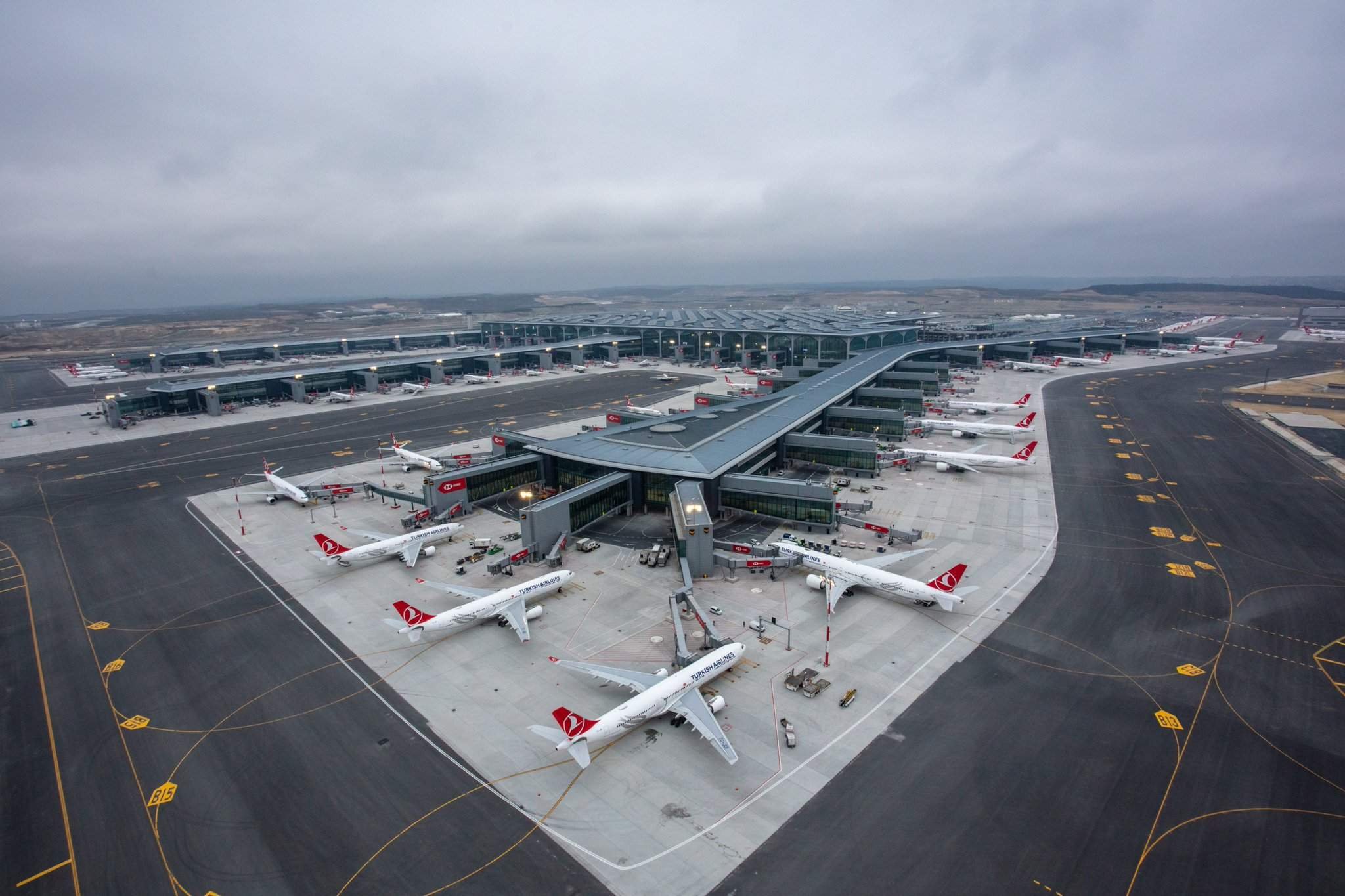Despite opportunities for normalizing relations between Turkey and Russia, due to Turkey’s neutral stance on the Ukrainian crisis, as well as growing understanding on some regional issues, there has been a recent spike in tensions between the two countries reflected in Turkey’s announcement on April 23rd of the closure of its airspace to Russian planes bound for Syria. The Turkish decision coincided with, and was prompted by, significant on-the-ground developments in Syria and Ukraine. The closure of Turkish airspace is linked to messaging on the part of Ankara to both Moscow and the West, signaling its stance on a number of issues, including Turkey’s support of the policy of pressure against Moscow, absorbing Western pressure on Ankara, responding to Russian counter-movements in Syria, and efforts to end military confrontations in Ukraine.
The regional context
On April 23rd, Turkey announced the closure of its airspace to military and civilian aircraft transporting troops and military equipment from Russia to Syria. In his statements, Turkish Foreign Minister Mevlut Cavusoglu said: “We closed the airspace to Russian military aircraft, as well as civilian aircraft bound for Syria, as was announced in March with the deadline set for April”. Ankara’s decision coincided with Turkey’s continued efforts to mediate an end to the conflict in Ukraine, as it hosted meetings between Russian and Ukrainian negotiators in Istanbul, and another meeting between Lavrov and his Ukrainian counterpart Dmytro Kuleba in Antalya. The Turkish president hopes to organize a Russian-Ukrainian presidential summit in Istanbul.
The closure of Turkish airspace to Russia also coincided with the latter’s moves to strengthen its military capabilities in the eastern Mediterranean, a strategic area for Turkey, in which it is conducting explorations for energy deposits. There has been growing Turkish concern since Russia joined the competition for eastern Mediterranean gas, having signed agreements with the Syrian regime in March 2021 allowing Russian companies to explore for oil and gas in the Syrian economic zone, which would would put Turkey under more pressure.
Moreover, the Turkish decision comes in the context of a tangible improvement in Turkish-American relations. A Congressional delegation from the US visited Turkey in mid-April and met with Turkish officials, and afterwards confirmed growing opportunities to reach understandings on contentious issues. The most significant outstanding issues are the S400 missiles that Turkey obtained from Moscow, and the F16 fighter jet deal Turkey wishes to conclude with the US.
At the same time, there has been a Russian military escalation in Syria, and a violation of the de-escalation agreement signed with Ankara by the Syrian regime and Russian forces. According to statements made on April 21st by the armed opposition factions in northwestern Syria supported by Turkey, “the de-escalation zone, which includes parts of Idlib governorate and the countryside of Latakia, Hama, and Aleppo, is witnessing a new military escalation, by air and land, by the Russian and regime forces.”
Turkey has also become impatient with Russia’s opposition to any Turkish ground incursion into more areas located on important roads in areas such as Ain Issa and Tel Rifaat. Turkey is seeking to expand its military operations against the Syrian Democratic Forces (SDF) in conjunction with the operation launched by Turkish forces since April 18th against the Kurdistan Workers’ Party (PKK) in northern Iraq. Turkey is aware that any Turkish military move to control strategic cities and towns in Syria requires political understandings with Moscow, which opposes major field changes at present, especially in light of its preoccupation with the Ukraine war.
Ankara’s objectives
There are many considerations behind Turkey’s decision to close the airspace to Russian military aircraft carrying soldiers and military equipment to Syria, which include:
Supporting the policy of pressure against Moscow: The decision to close Turkish airspace to Russian planes heading to Syria, which is known to be the shortest distance for the Russian army to reach its bases there, can be considered a move to pressure Russia to soften its response to Turkish mediation and reach a ceasefire with Kyiv. It is of note that Turkey has already closed the Bosporus and Dardanelles straits to maritime navigation to the passage Russian military ships to the Black Sea in March. There are to rising fears that Russia seeks to control the entire Ukrainian coast, especially after it took control of the city of Mariupol.
Reducing Western pressures on Ankara: The Turkish decision comes as part of Ankara’s response to Western criticisms of Turkey for not joining in the implementation of Western sanctions on Russia. It also signals to the West that Turkey has the means and tools to pressure Russia, and the ability to secure the interests of NATO allies, without implementing the economic sanctions. Western powers and NATO will perceive this move as Turkish support of Ukraine, while Ankara on its part hopes to score diplomatic points in its thorny issues with Washington and Europe after years of tension. It has achieved some success in this respect, as Washington is revisiting the issue of supplying F16 planes to Turkey, and the EU has eased its criticism of Turkey.
Responding to Russian counter-movements in Syria: By closing its airspace to Russian planes heading specifically to Syria, Turkey aims to respond to Russia’s intense verbal and on-the-ground escalation against Turkish-backed factions inside Syria. This is evidenced by the Russian air strikes on April 22nd targeting areas in the Aleppo countryside in northern Syria that are under the control of the Turkish-backed Syrian National Army. Russia also violated the de-escalation agreement signed with Ankara in 2020, bombing the areas under the control of the Turkish army in Idlib. The latest Turkish decision also comes in the context of Ankara’s attempts to pressure Russia to obtain a green light for Turkish military intervention areas controlled by the Syrian Democratic Forces, which Moscow still strongly opposes.
Efforts to end the conflict in Ukraine: Turkey realizes that exerting more pressure on Moscow, even without direct military involvement on the side of Ukraine, will lay the foundation for an active Turkish role in post-war Ukraine, particularly on the economic and reconstruction fronts. In this context, it should be noted that Kyiv sees Ankara as an important strategic partner. Therefore, in pressuring Moscow, Turkey hopes to be in a position to win a large part of the reconstruction contracts once the war ends and peace is established in Ukraine.
In sum, Turkey’s decision to close its airspace to Russia comes in the context of blocking Russian moves against Turkish interests in Syria on one hand and reducing Western pressures on the other. However, despite Turkish gains from the recent decision, the move could further aggravate simmering tensions between Moscow and Ankara, which have already been on the rise.


